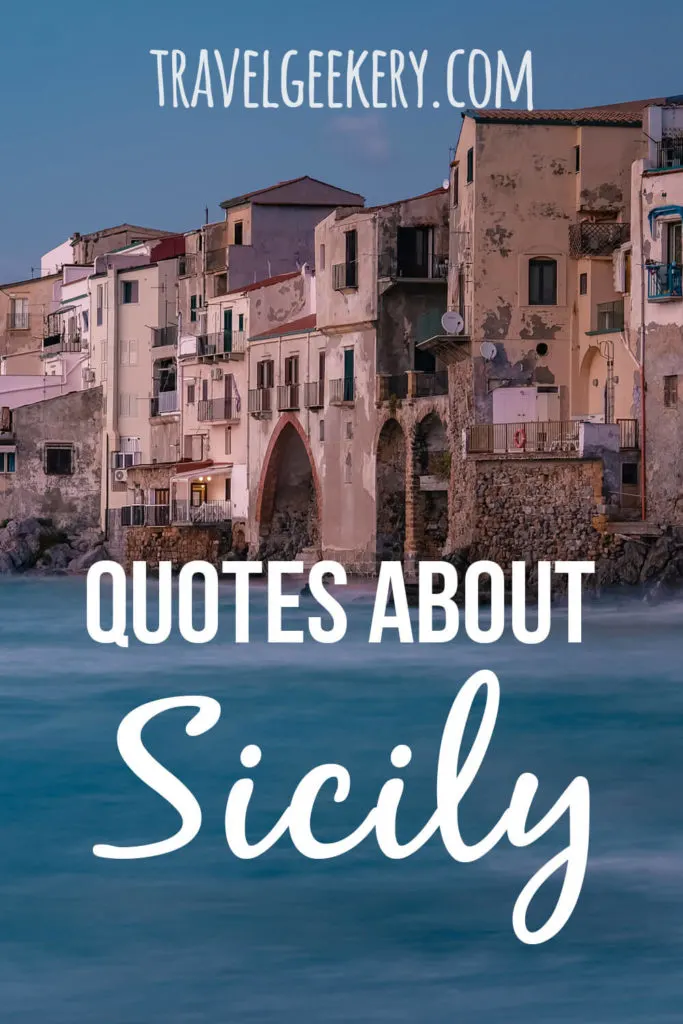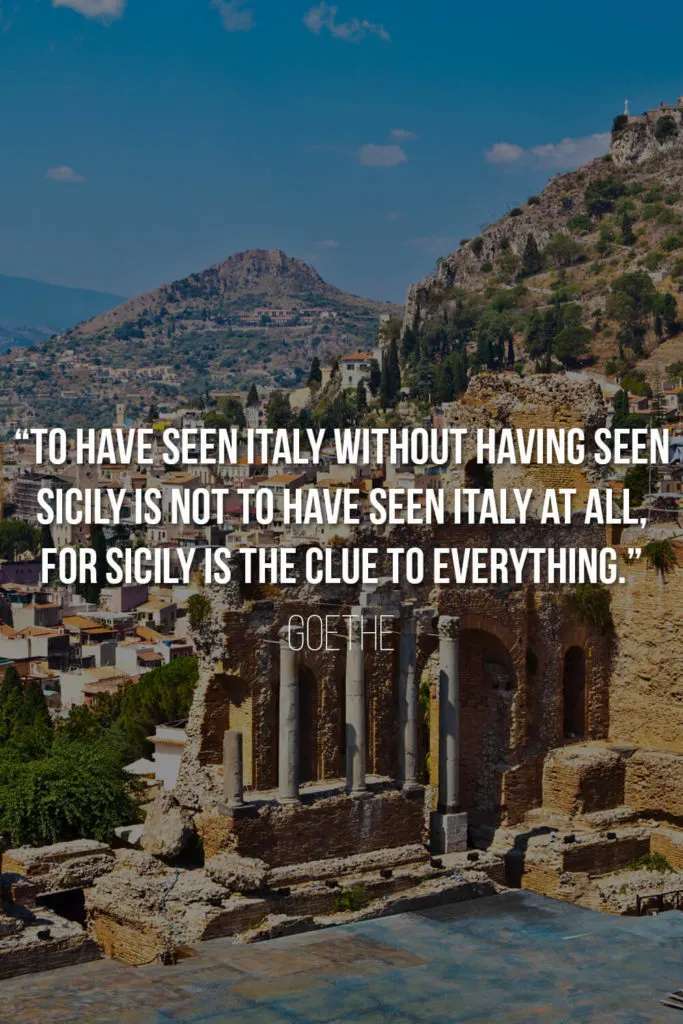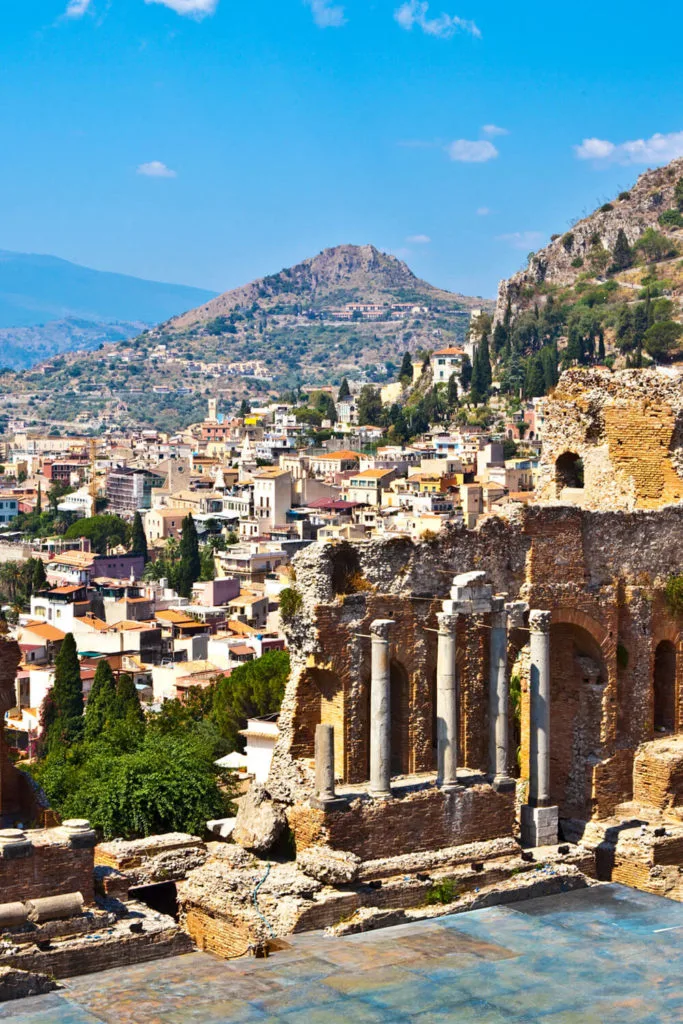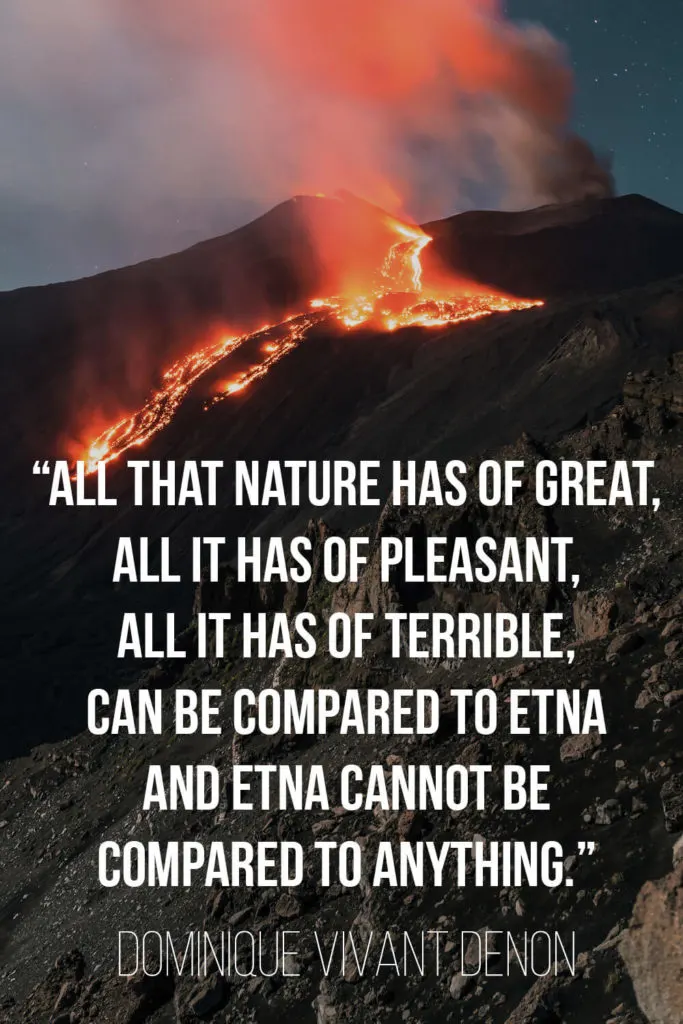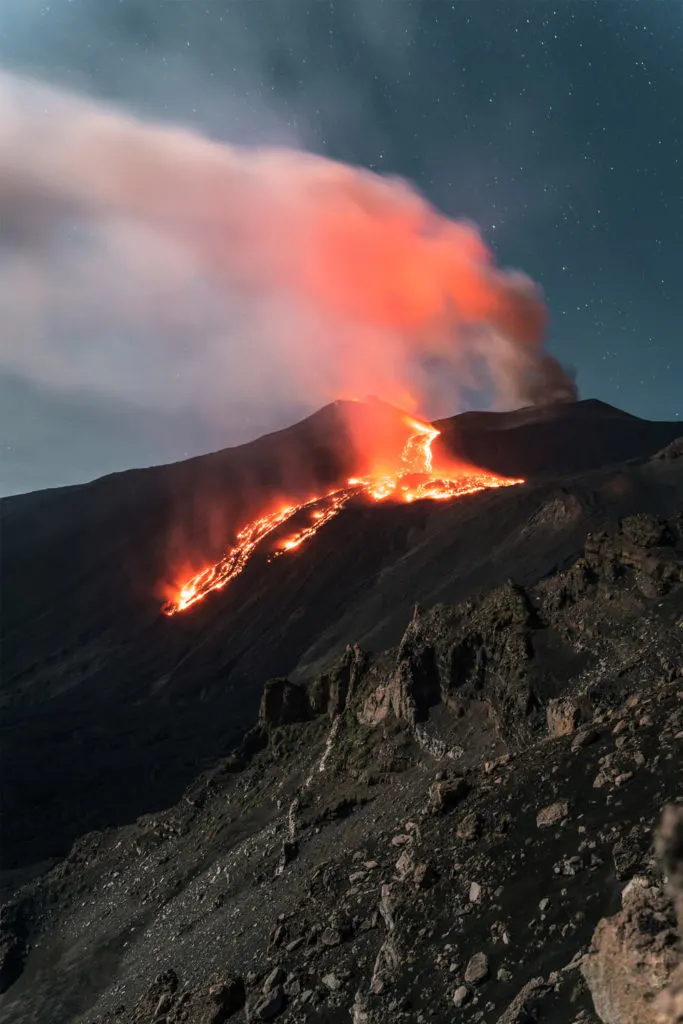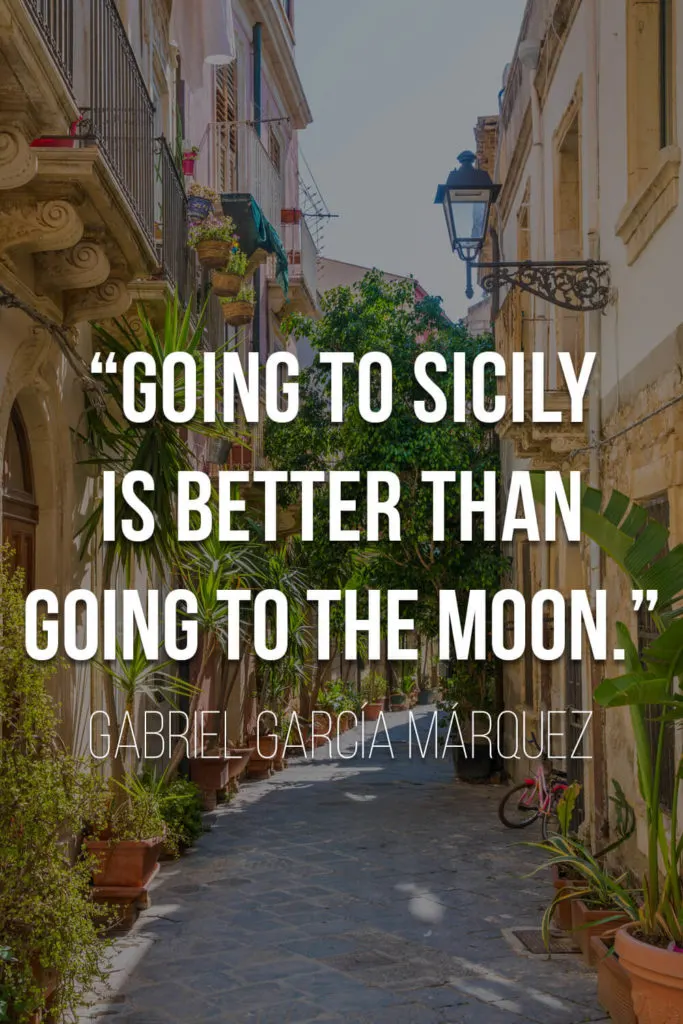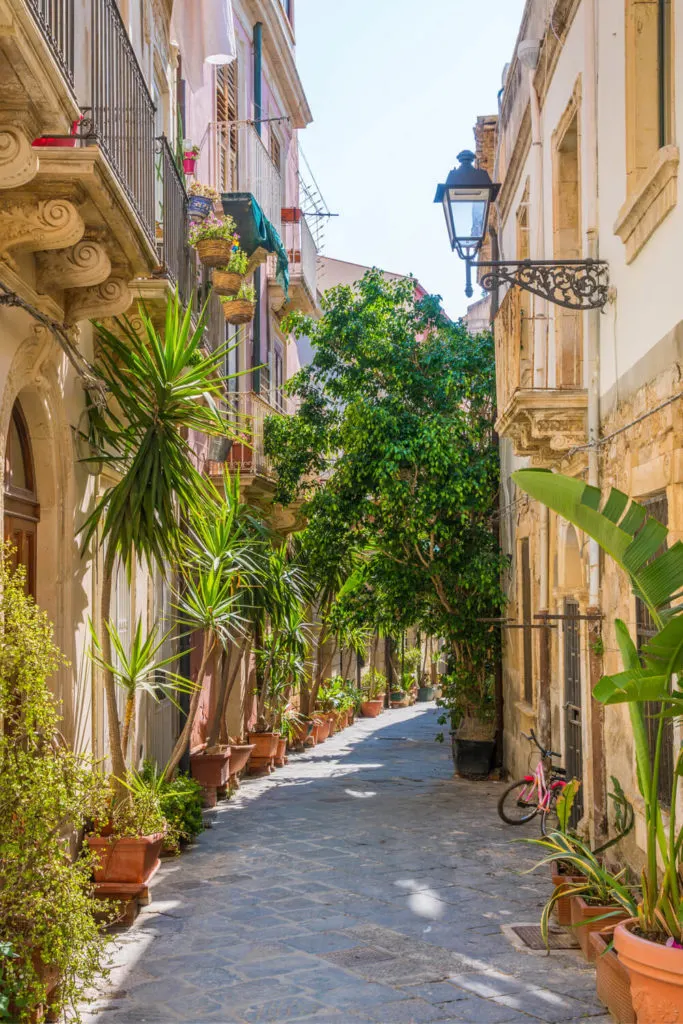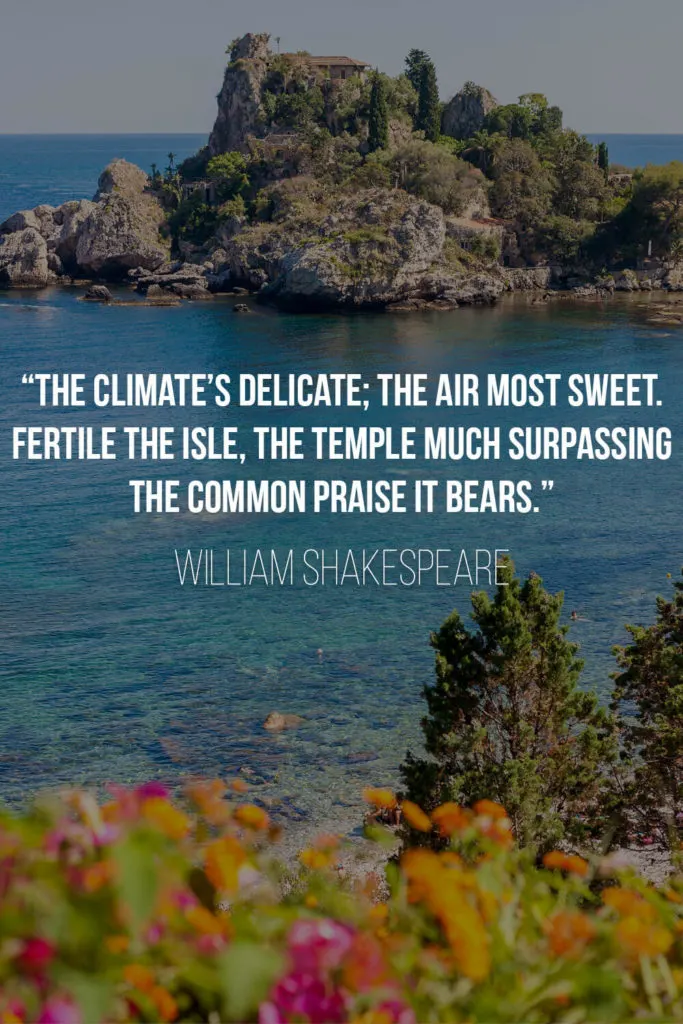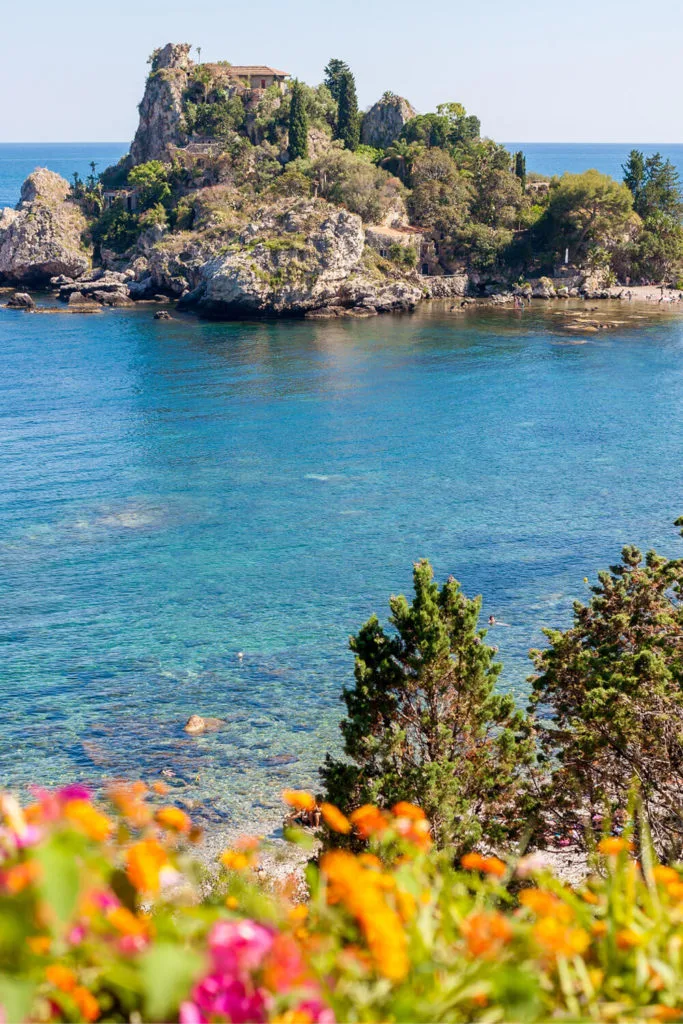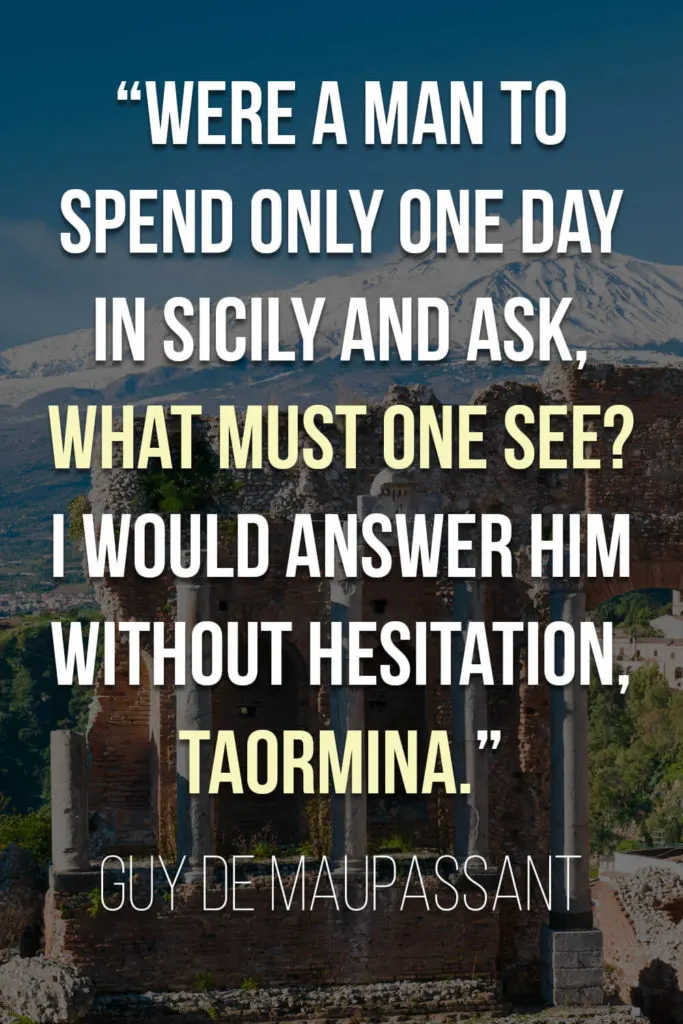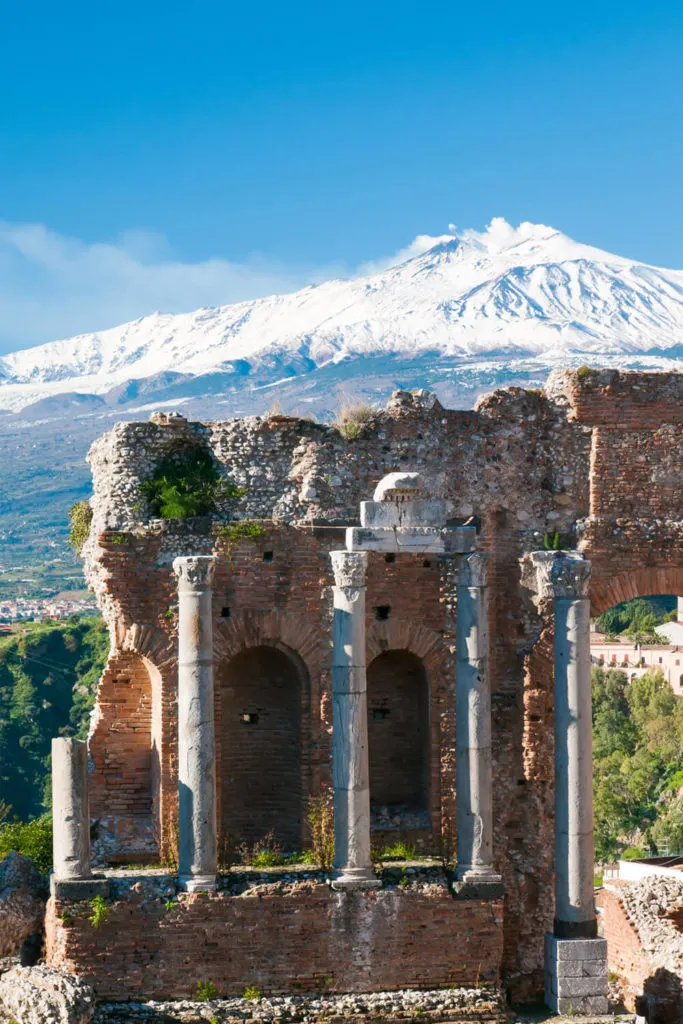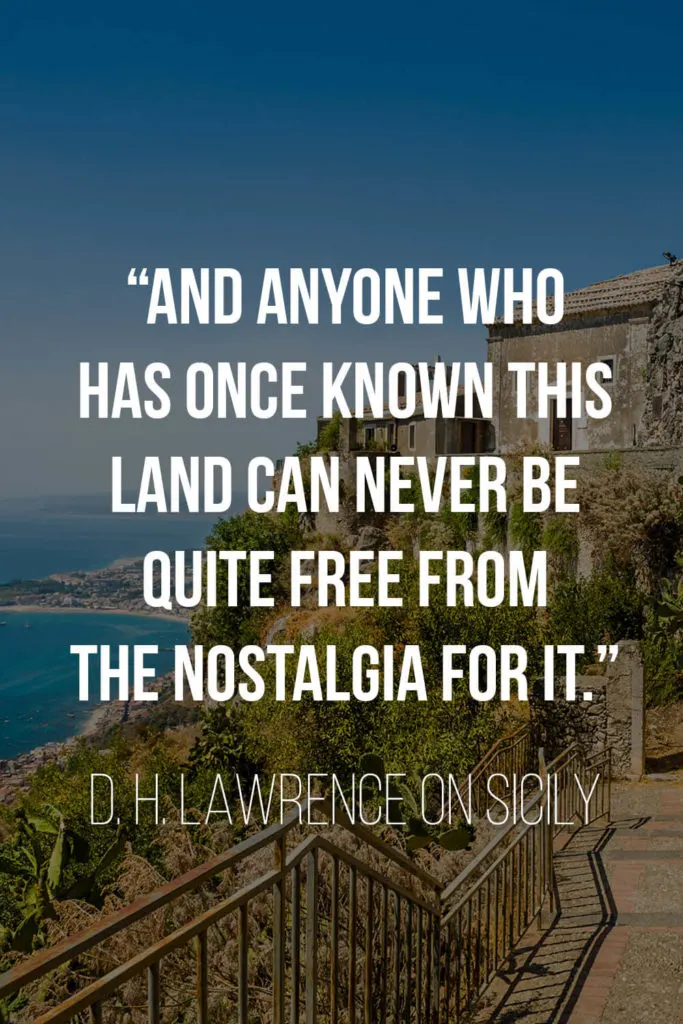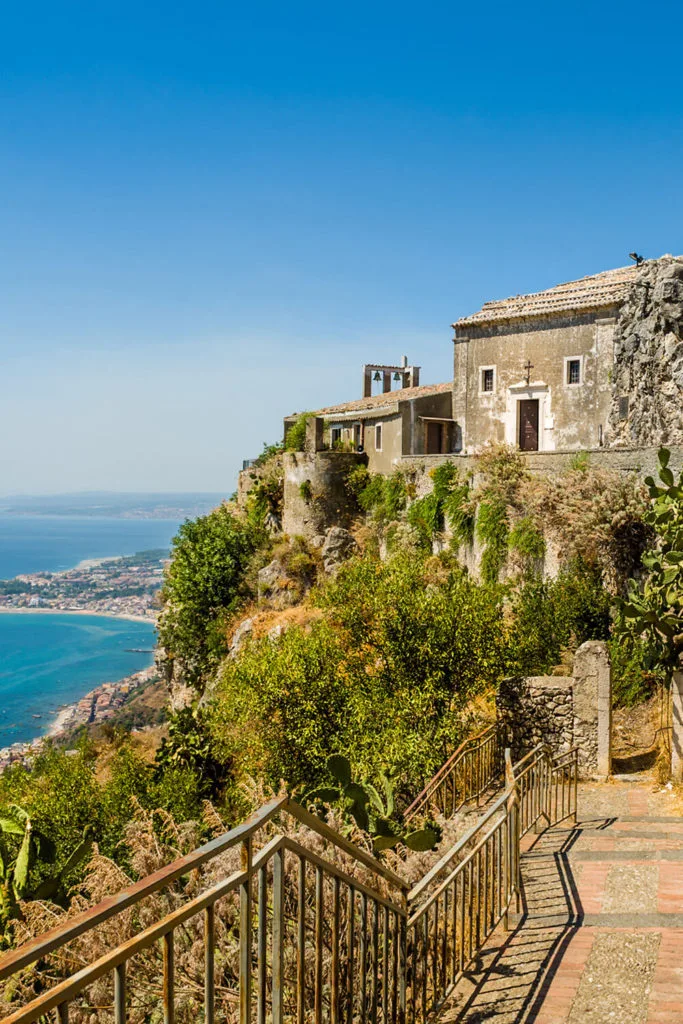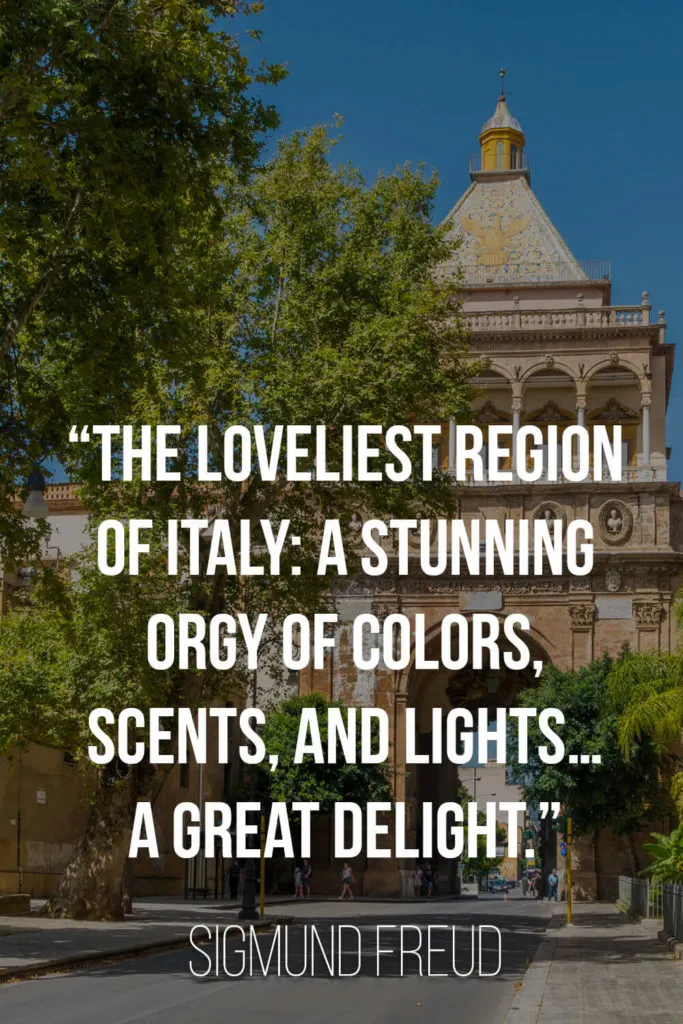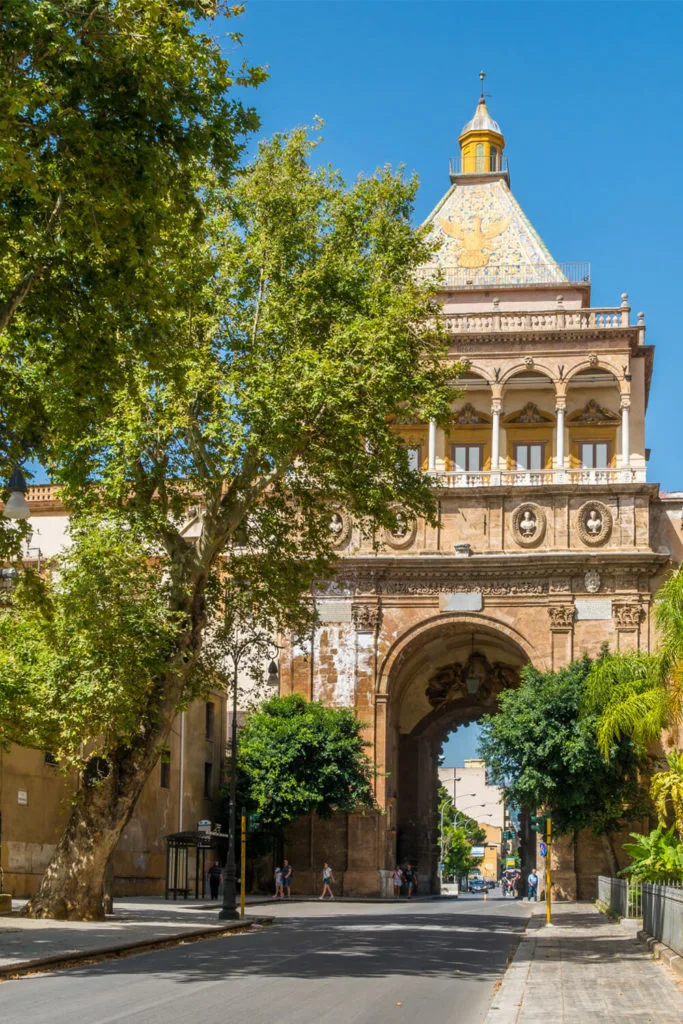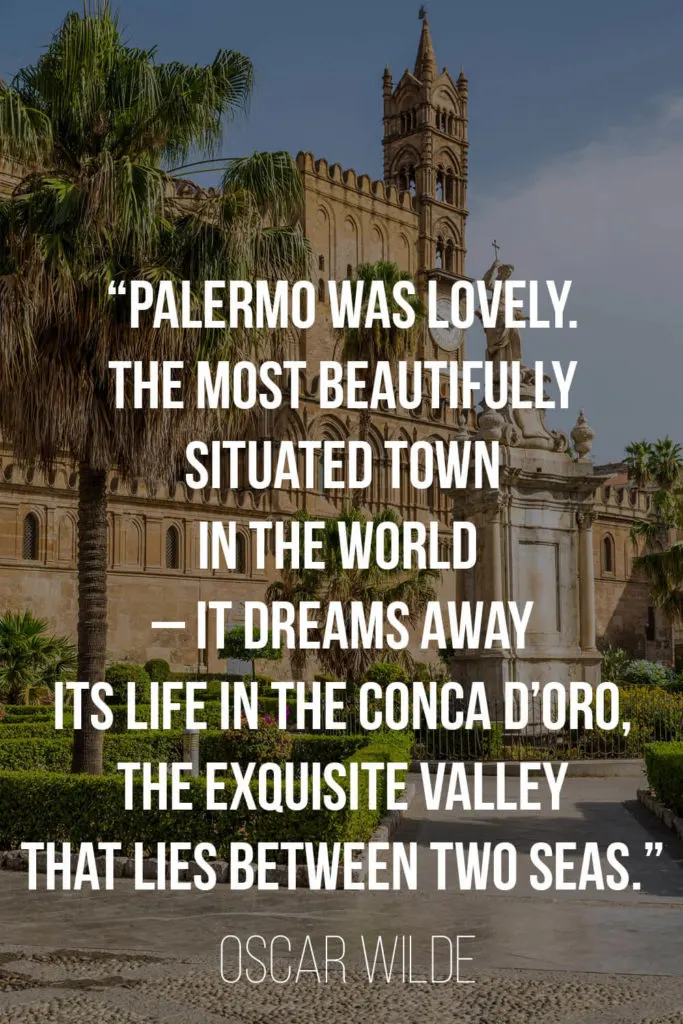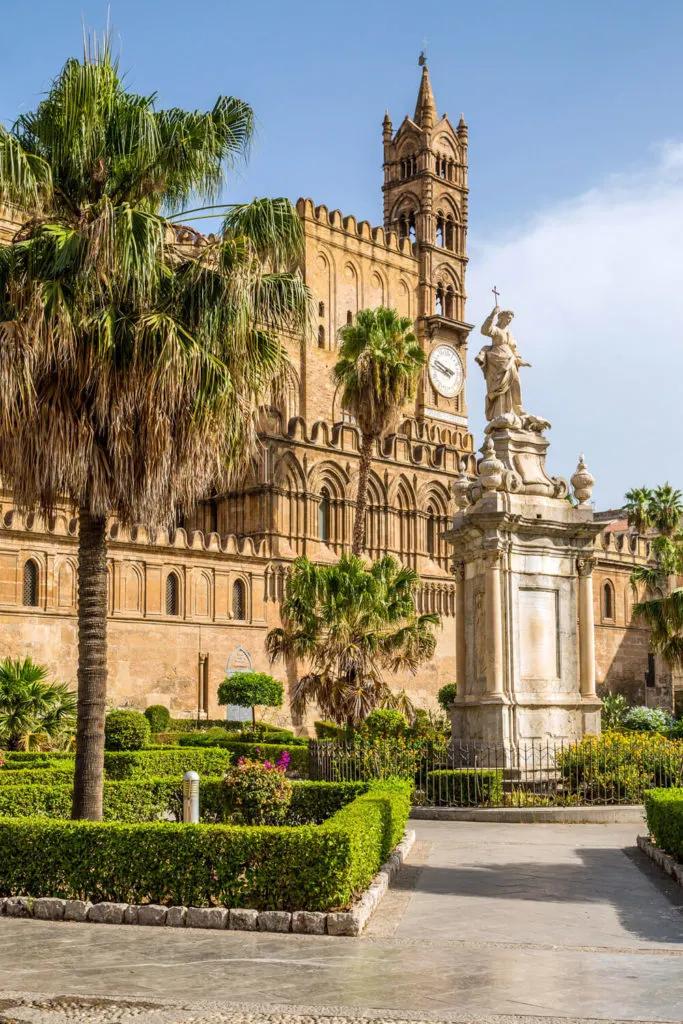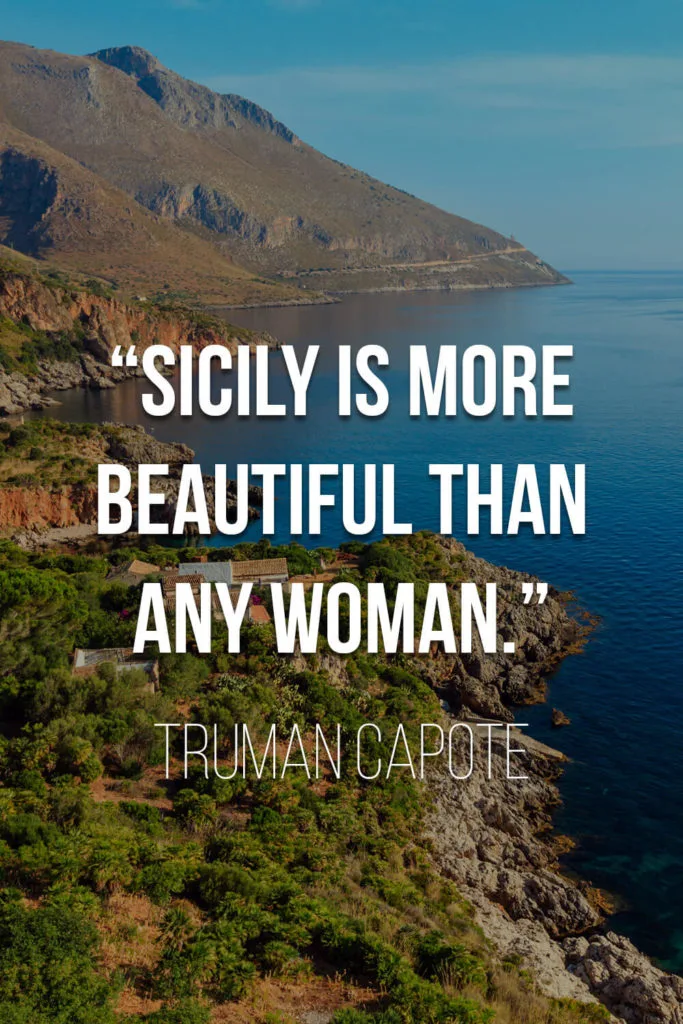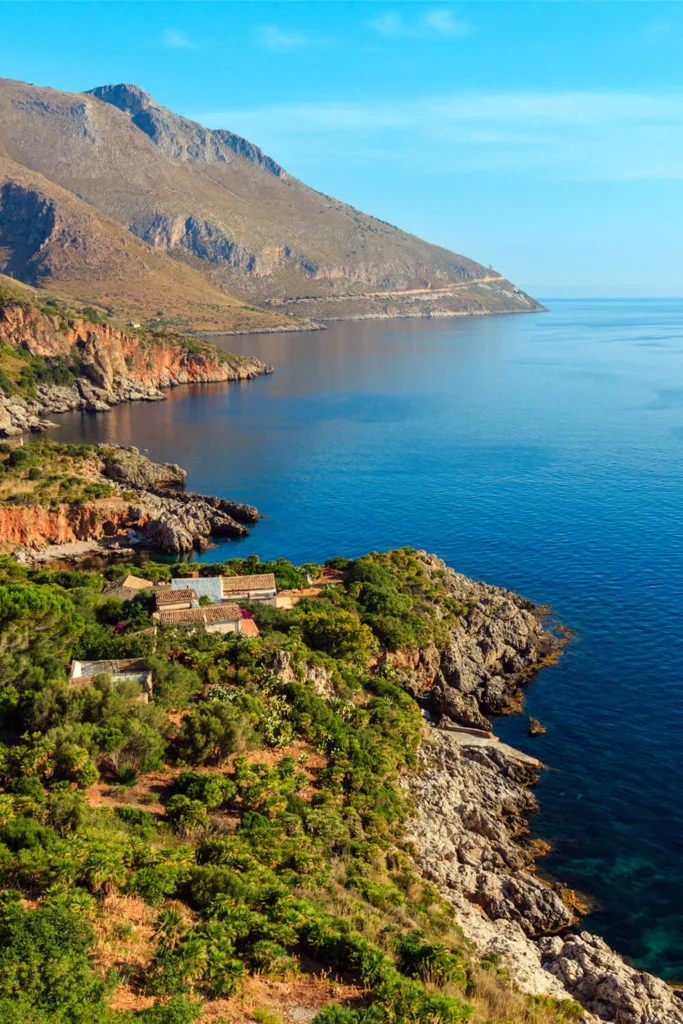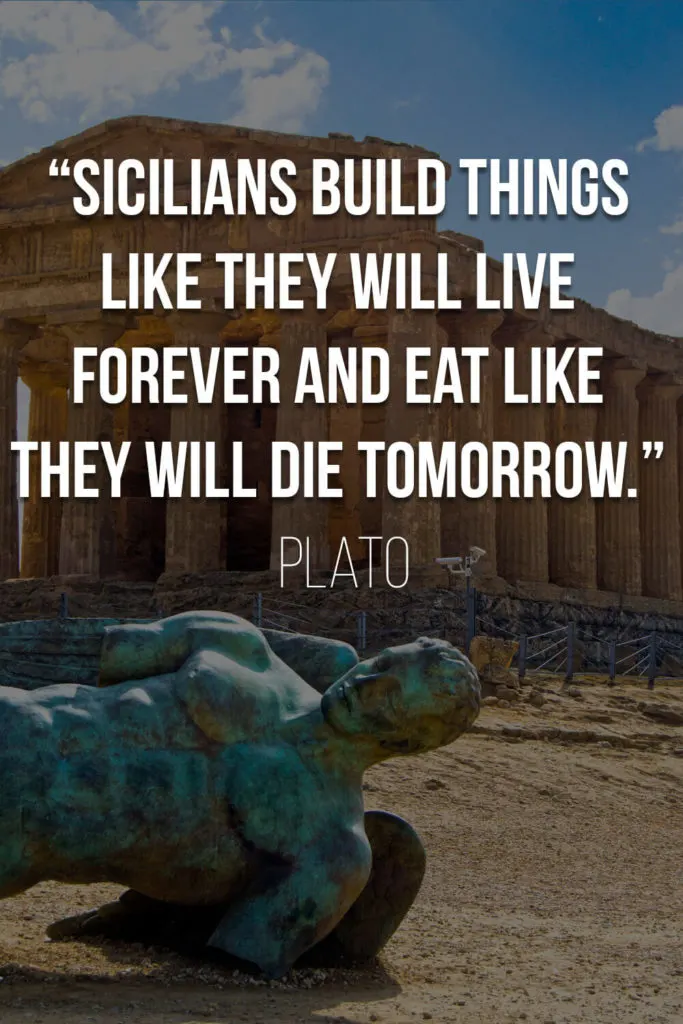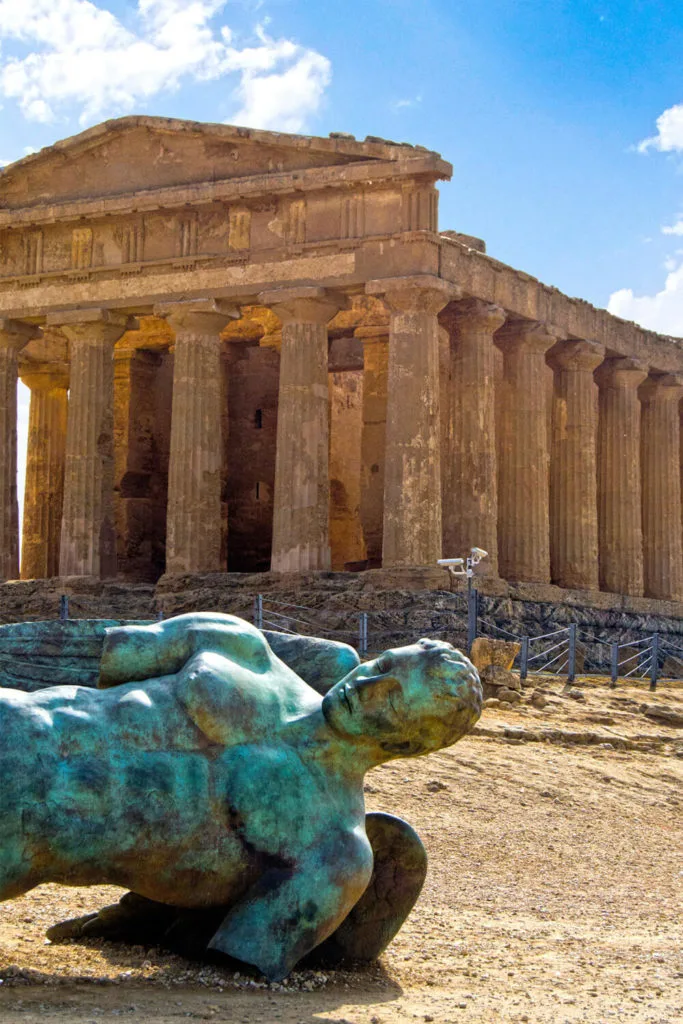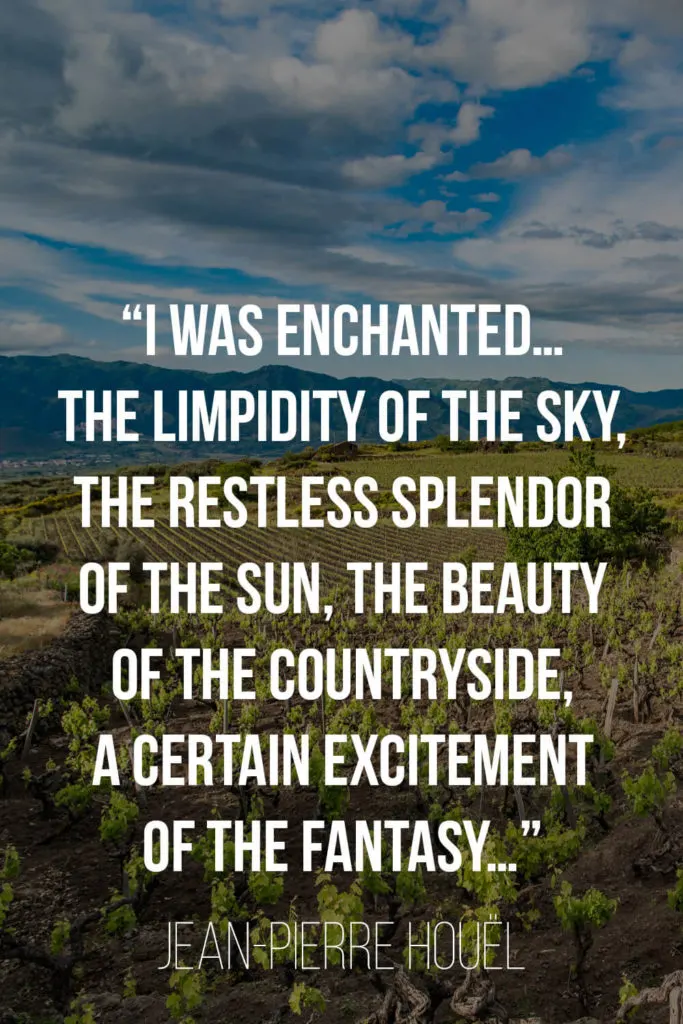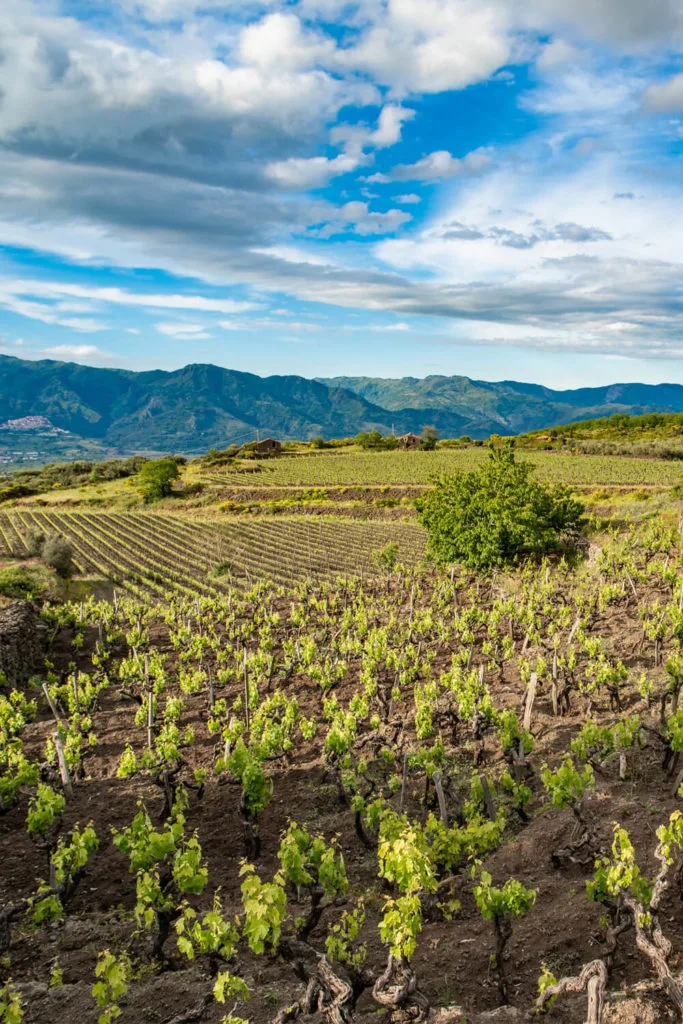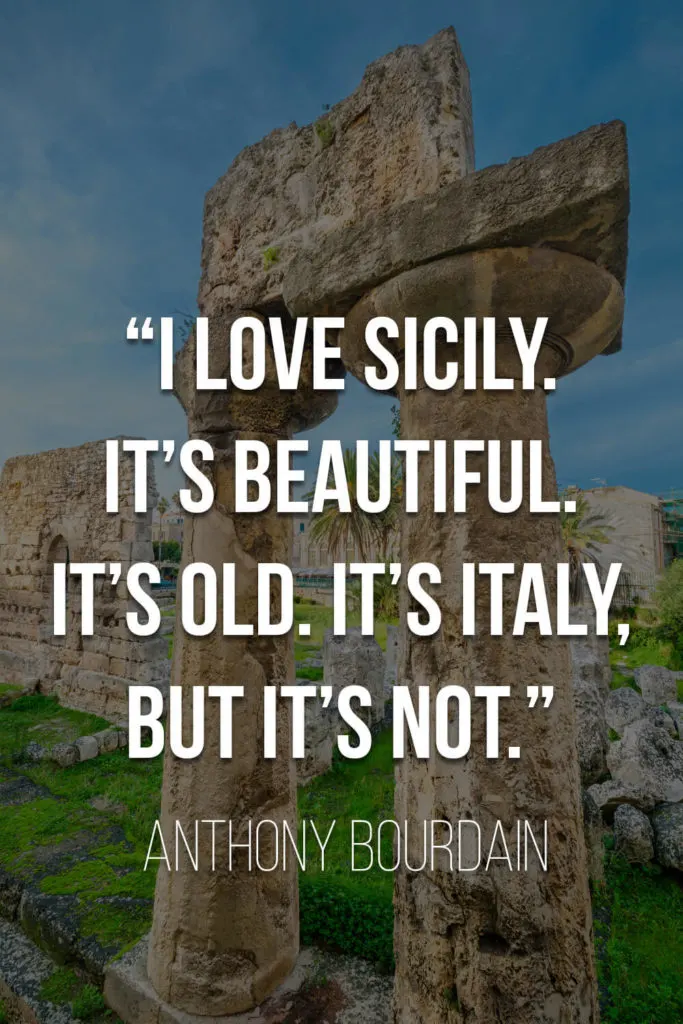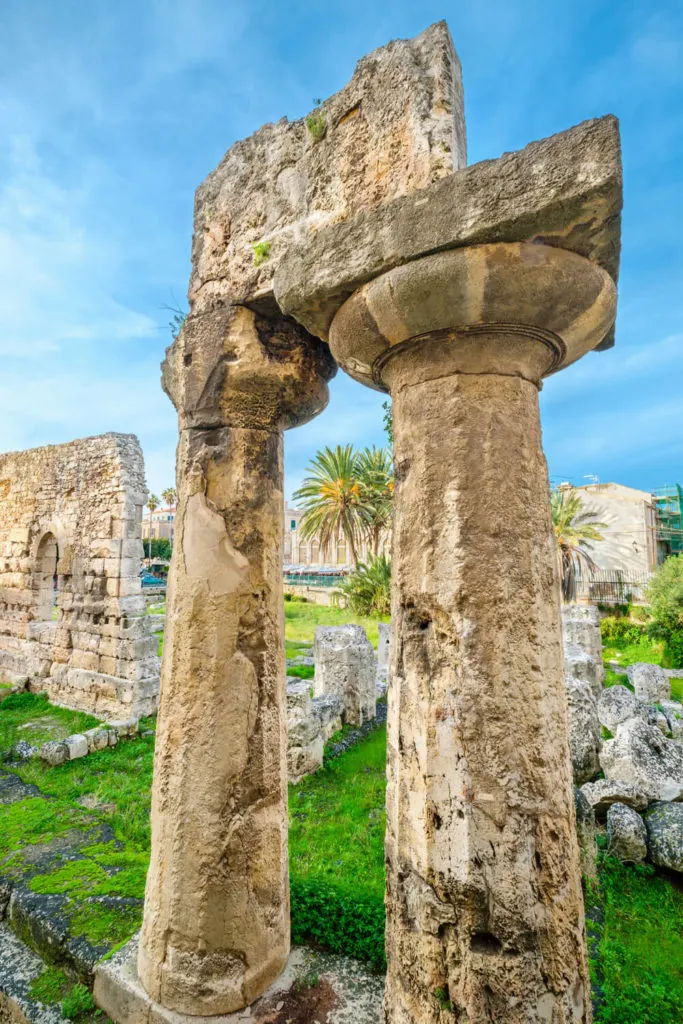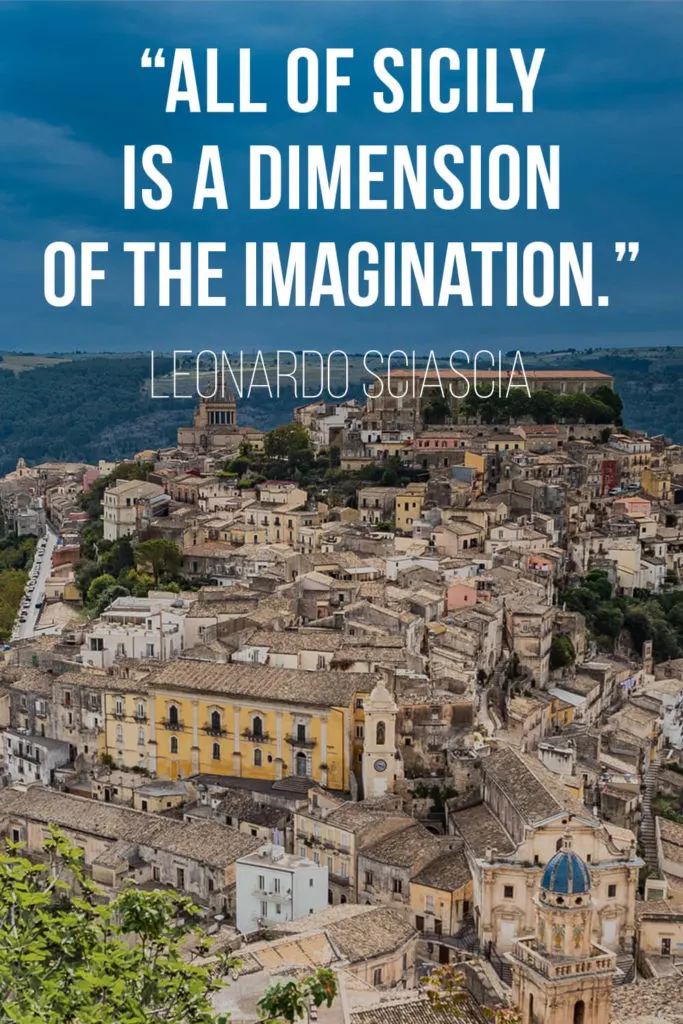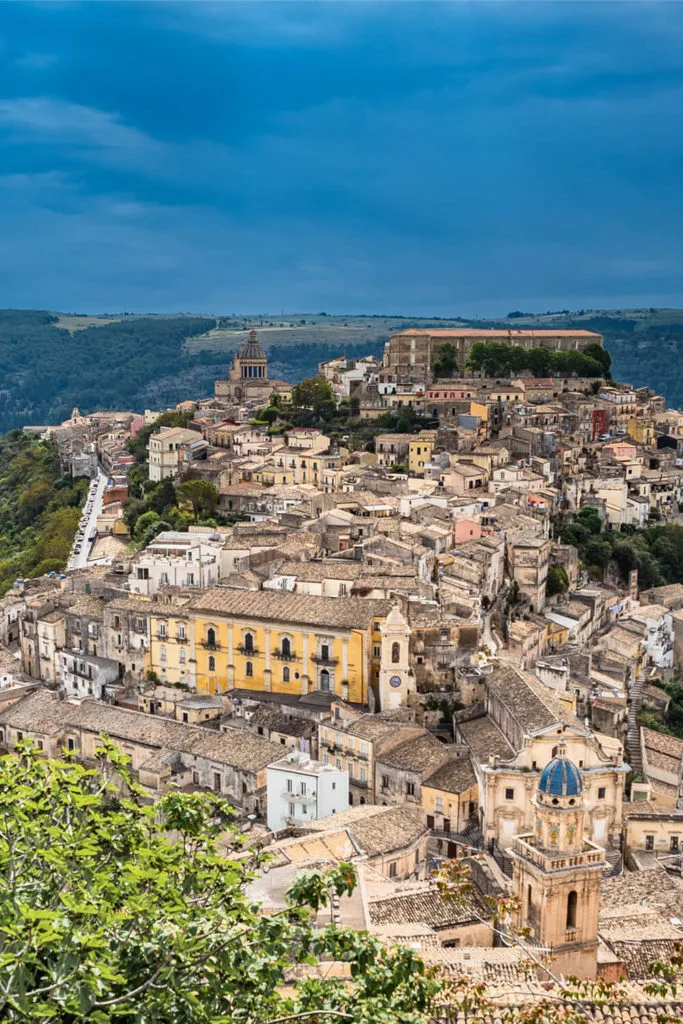Table of Contents
Perhaps you’ve been to Sicily already and are looking for some Sicily quotes to remind you of the unique atmosphere that permeates the lovely island.
Or maybe you’re dreaming about visiting one day and are curious about what great minds have thought of it.
Either way, these more or less famous quotes about Sicily will bring about some warming feelings of the scorching sun, refreshing waves, and historical masterpieces above which the almighty Mount Etna looms.
Let’s see what these 13 great minds of the past centuries had to say on the beauty of the island and what (sometimes scandalous) stories accompanied those statements.
We’ll start with the most famous of them all – Goethe Sicily quote:
Johann Wolfgang von Goethe (1749 – 1832)
“To have seen Italy without having seen Sicily is not to have seen Italy at all, for Sicily is the clue to everything.”
– Goethe
Johann Wolfgang von Goethe visited the magical island in 1787 on a 2-year trip through Italy. It was an escape from his life in Germany and the wide fame that arose after publishing his first works.
He declared his affection for Sicily in his private diaries, as well as letters to friends – those later resulted in a book called Italian Journey. It’s the best works of Goethe in Sicily, so give it a read if you’re keen.
He continues:
“The purity of the contours, the softness of everything, the exchange of soft colors, the harmonious unity of the sky with the sea and the sea to the land… who saw them once, shall possess them for a lifetime.”
I love also Goethe’s words on the atmosphere in Sicily, describing the great Sicilian welcome:
“I don’t have words to express how she has welcomed us: with fresh green mulberry trees, evergreen oleanders, lemon hedgerows etc. In a public garden there are broad beds of buttercups and anemones. The air is mild, warm and aromatic, the wind balmy. ”
– Goethe
Dominique Vivant Denon (1747 – 1825)
“All that nature has of great, all it has of pleasant, all it has of terrible, can be compared to Etna and Etna cannot be compared to anything.”
– Dominique Vivant Denon
Surprisingly, there are not many Mount Etna quotes. Fortunately, Vivant Denon, a French artist and a writer, encapsulated his admiration of the mighty volcano in perfect words.
Denon was a diplomat and his occupation eventually took him to Naples. From there, he also visited Sicily and Malta. His return was rather bittersweet since his diplomatic career was ended at the request of Maria Isabella of Spain, the Queen of the Two Sicilies (source).
Gabriel García Márquez (1927 – 2014)
“Going to Sicily is better than going to the moon.”
– Gabriel García Márquez
I have enjoyed the works of Gabriel Garcia Marquez so I threw myself into researching which of his works this statement came from. It belongs to one of the more popular Sicilian quotes.
As per my research, the only story that is set in Sicily is a short story called in English Miss Forbes’s Summer of Happiness (El verano feliz de la señora Forbes) published as a part of a short story book called Strange Pilgrims (Doce cuentos peregrinos).
The story talks about two Colombian kids watched on a Sicilian vacation by a German nanny, while their parents take a 2-week cruise. There was a movie of the same name based on the story but set in Mexico.
However, I found the original story online in Spanish (here), but the quote is not in it.
It is possible that Márquez spoke these famous words outside his works.
William Shakespeare (1564 – 1616)
“The climate’s delicate; the air most sweet.
Fertile the isle, the temple much surpassing
The common praise it bears.”
– Shakespeare
It is believed Shakespeare is describing the Temple of Segesta located in the northwestern part of Sicily.
It’s quite remarkable how much Shakespeare knew about Sicily and Italy. In fact, 15 of his 37 dramas, nearly a half, take place in Italy! Of those, Much Ado about Nothing and The Winter’s Tale are both set in Sicily.
And yet, there’s no proof Shakespeare ever visited Sicily or Italy.
Naturally, this gave rise to a number of conspiracy theories. One of them states an English aristocrat Edward de Vere wrote some of these works instead. Read more on that theory here.
Another theory posits that Shakespeare was actually Sicilian. It’s based on a striking similarity of Shakespeare’s Much Ado About Nothing and work by Michelangelo Florio published 50 years before. Read about the theory here.
Guy de Maupassant (1850 – 1893)
“Were a man to spend only one day in Sicily and ask, “What must one see?” I would answer him without hesitation, “Taormina.” It is only a landscape, but a landscape where you find everything on earth that seems made to seduce the eyes, the mind and the imagination.”
– Guy de Maupassant
The French writer visited Sicily in the spring of 1885 and fell in love. At the time when Sicily was considered uncivilized in France, he traveled by train, boat, or even on a horse and crisscrossed the island from Palermo in the West all the way to Sicily East coast.
He climbed Mount Etna, visited museums, archeological sites, and all the main places anybody going to Sicily would go see. And yet, he enjoyed Taormina the most. I can fully identify with that, I also think Taormina is one of the best places to visit in Sicily.
He had a high esteem for the people, too. As he says in his travel memoir:
“Those men, those of former times, had soul and eyes that in no way resemble ours, and in their veins, along with their blood, flowed something that has disappeared: love and admiration for the Beautiful.”
– Guy de Maupassant
D. H. Lawrence (1885 – 1930)
“And anyone who has once known this land can never be quite free from the nostalgia for it.”
– D. H. Lawrence
David Herbert Lawrence spent 2 years in Sicily in the early 1920’s, specifically at Fontana Vecchia in a hill above Taormina (see my overview of Taormina accommodation).
He was fascinated not just by the island, its people, and the omnipresent myths rooted there, but also by the arts. He admired the works of a Sicilian writer Giovanni Verga and went as far as translating a few of his novels and stories into English.
Frieda Lawrence, his wife, had an affair with a local mule keeper while Lawrence himself was recovering from tuberculosis. Apparently, that inspired Lawrence’s famous novel Lady Chatterley’s Lover. If you’re interested in the gossip, read it here.
He used Sicily as a setting for his novel Sun (1926) and several poems about Sicily, of which Snake is perhaps the most famous one. You can read the whole poem here, but let’s cite a few lines:
“He lifted his head from his drinking, as cattle do,
And looked at me vaguely, as drinking cattle do,
And flickered his two-forked tongue from his lips, and mused
a moment,
And stooped and drank a little more,
Being earth-brown, earth-golden from the burning bowels
of the earth
On the day of Sicilian July, with Etna smoking.”
– D. H. Lawrence
This is also an excellent resource on D. H. Lawrence in Sicily.
Sigmund Freud (1856 – 1939)
“The loveliest region of Italy: a stunning orgy of colors, scents, and lights…a great delight.”
– Sigmund Freud
The father of psychoanalysis visited Sicily in 1910 with his friend from the field. His voyage to Sicily was motivated by the desire to explore Greater Greece (Magna Graecia).
Freud enjoyed Palermo, the countryside, but didn’t particularly like Ortigia, the historical part of Syracuse. He also struggled with the heat, since he visited in August. He didn’t make it to Taormina, as originally planned, because of a cholera outbreak.
The visit to Sicily greatly influenced Freud for many years ahead. He didn’t only travel for leisure, he kept working on his hypotheses and the Sicilian experience helped him shape his opinions.
He was interested in the Oedipal tale and in that context, Syracuse in Sicily represented the maternal site.
If you’re interested in Freud’s adventures in Sicily, I can highly recommend a long article by Rosalba Galvagno, an Italian Professor of Theory of Literature titled “Freud and Great Greece. Metamorphoses of the ‘exotic’ journey between ancient and modern imaginary.” I only found it in PDF form (direct download here).
Oscar Wilde (1854 – 1900)
“Palermo was lovely. The most beautifully situated town in the world – it dreams away its life in the Conca d’Oro, the exquisite valley that lies between two seas. The lemon groves and the orange gardens were entirely perfect.”
– Oscar Wilde
This is Oscar Wilde’s most famous quote about Sicily, but not everyone knows it was actually Taormina he fell in love with. He stayed in Taormina for a month in 1898 and adored the town.
Back then, it was a popular spot to visit for eccentric foreigners, often homosexual. Oscar Wilde enjoyed assisting his friend, photographer Von Gloeden, in photographing young local men.
Oscar Wilde’s trip to Taormina was to distance himself from his lover Alfred Douglas, after rumors started spreading back home. He dreamed the two could live in Taormina together.
Soon after his return, the relationship ended. Oscar Wilde did come back to Sicily eventually, but never to Taormina again. In 1900 he visited Palermo and the quote above originates from that time.
Truman Capote (1924 – 1984)
“Sicily is more beautiful than any woman.”
– Truman Capote
I don’t know if that’s too much of a compliment since Truman Capote, the legendary American writer, was openly gay.
He must have loved Sicily, though, since he spent quite some time there. In fact, he rented/bought the villa in the hills above Taormina that D. H. Lawrence resided in.
Unfortunately not much is publicly known about his repeated visits to Sicily. Some sources say he spent 2 years in total on the island.
The time he spent in Sicily had one visible display in his work. Salvatore “Sally” Tomato, a character from Capote’s famous Breakfast at Tiffany’s, is a Sicilian gangster born in Cefalu.
Plato (4 – 5th century BC)
“Sicilians build things like they will live forever and eat like they will die tomorrow.”
– Plato
Let’s go back in time a lot further to inspect Plato’s motives for writing the above words – to the year 388 BC, when Plato was almost forty.
At the time, when getting to Sicily from Athens would require a rocky weeklong voyage on the dangerous Mediterranean where pirates roamed, he visited the then Greek State of Syracuse in Sicily three times!
The first thing he noticed about the locals was the hedonistic way of life when one would eat plentifully twice a day and never sleep alone at night.
Plato became friends with the brother of the local tyrant who ruled the State of Syracuse. He tried to bring philosophy into the local way of ruling, to make it more just and wise.
He didn’t succeed, not even on his second visit at the age of 60 on the request of the tyrant’s son, or on his third and final visit at the age of 70.
The whole story is quite fascinating, but we don’t have the space to go into detail here. Read this excellent article on the topic, if you’re interested.
Jean-Pierre Houël (1735 – 1813)
“I was enchanted… the limpidity of the sky, the restless splendor of the sun, the beauty of the countryside, a certain excitement of the fantasy…which brought to mind the time when in the fields one encountered the divine.”
– Jean-Pierre Houel
Houel was a French painter from a well-situated family who became fascinated by Italian painters. After quite some effort, he managed to get a job at the French Academy in Rome. From there, he explored the South of Italy and eventually the islands too.
He first visited Sicily in 1770, at the age of 35. Sicily became the object of his landscape paintings for years ahead, even after he returned to Paris. He adopted the Italian style of painting and was able to earn some cash through that and save for another trip.
Between 1776 and 1779 he explored the whole island of Sicily from West to East, including the Aeolian Islands of Lipari and Vulcano.
His Sicilian paintings became popular in France, with even Catherine II of Russia and Louis XVI being among eager purchasers.
But his main contribution to the study of Sicily and its art lies in his beautifully illustrated travel book called “Voyage pittoresque des isles de Sicile, de Malta et de Lipari,” which was published in four volumes.
You could say Jean-Pierre Houel wrote one of the first travel guidebooks, illustrating his works with watercolors instead of snapping photos. He provided cultural insights and beautiful observations on the island and its people.
Anthony Bourdain (1956 – 2018)
“I love Sicily. It’s beautiful. It’s old. It’s Italy, but it’s not. I like the people—proudly mixed up, preyed upon by generations of invaders and a nearly ubiquitous fraternal organization that makes even the simplest transaction—like getting fruit to market—complicated. Sicilian food is exactly everything I love: the cuttlefish-stained pasta, street meat, inky wines, oily fishes. And for some reason, though I don’t speak Italian, I understand nearly every word in Sicily.”
– Anthony Bourdain
Anthony Bourdain loved Sicily and visited the island often, but on a professional level, he never seemed to get it right, the way he wanted to – to provide a real insight into the local food scene and culture. You can read his notes here.
His numerous shooting misadventures escalated with his last episode of Parts Unknown shot in Sicily in 2013. After noticing a fisherman he was out on the sea with threw store-bought octopi for Bourdain to “catch”, he absolutely flipped.
Anthony Bourdain was dealing with mental problems, and his Sicilian failures resulted in a serious breakdown. As he put it:
“The fault is my own—for what kind of idiot could EVER be miserable in Sicily?
Me.”
– Anthony Bourdain
Leonardo Sciascia (1921 – 1989)
“All of Sicily is a dimension of the imagination.”
– Leonardo Sciascia
Ok, so originally I didn’t mean to feature Italian writers born in Sicily, because they must be biased, right? But Leonardo Sciascia put it so brilliantly that I couldn’t resist.
Sciascia lived his whole life in Sicily, except a year spent in Rome. He was also involved in politics and quite vocal against the mafia.
He also left a cultural mark since he collected Sicilian sayings and proverbs into an opus Occhio di Capra (Goat’s Eye) in 1984.
Of course, there exist even more quotes about Sicily, but I picked those that most spoke to me in the way they described the stunning landscapes and the nature of the local people.
The heartwarming feeling of visiting Sicily put into flowery words that transport one to the location is no easy task, but I feel like these 13 personalities did a great job.
Do you have any other favorite Sicily quotes?
Pin this post for later:
